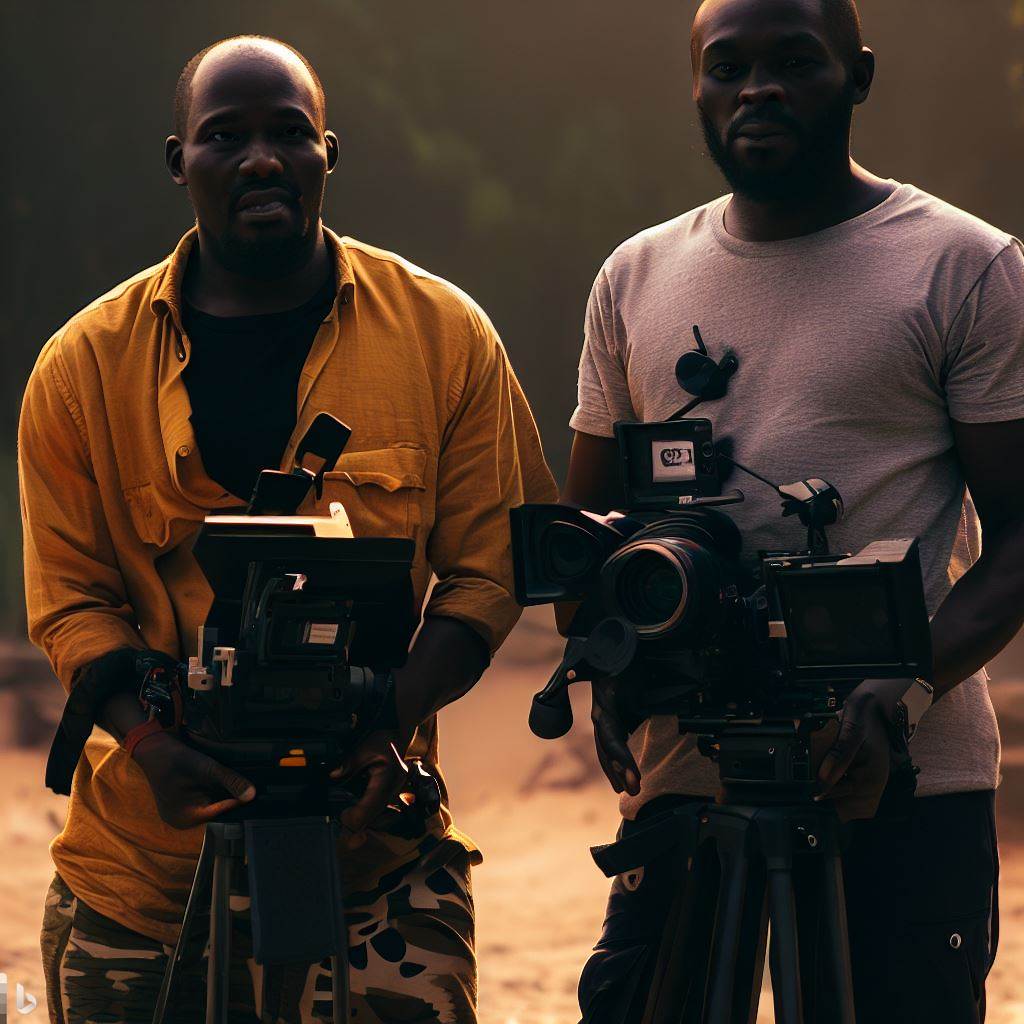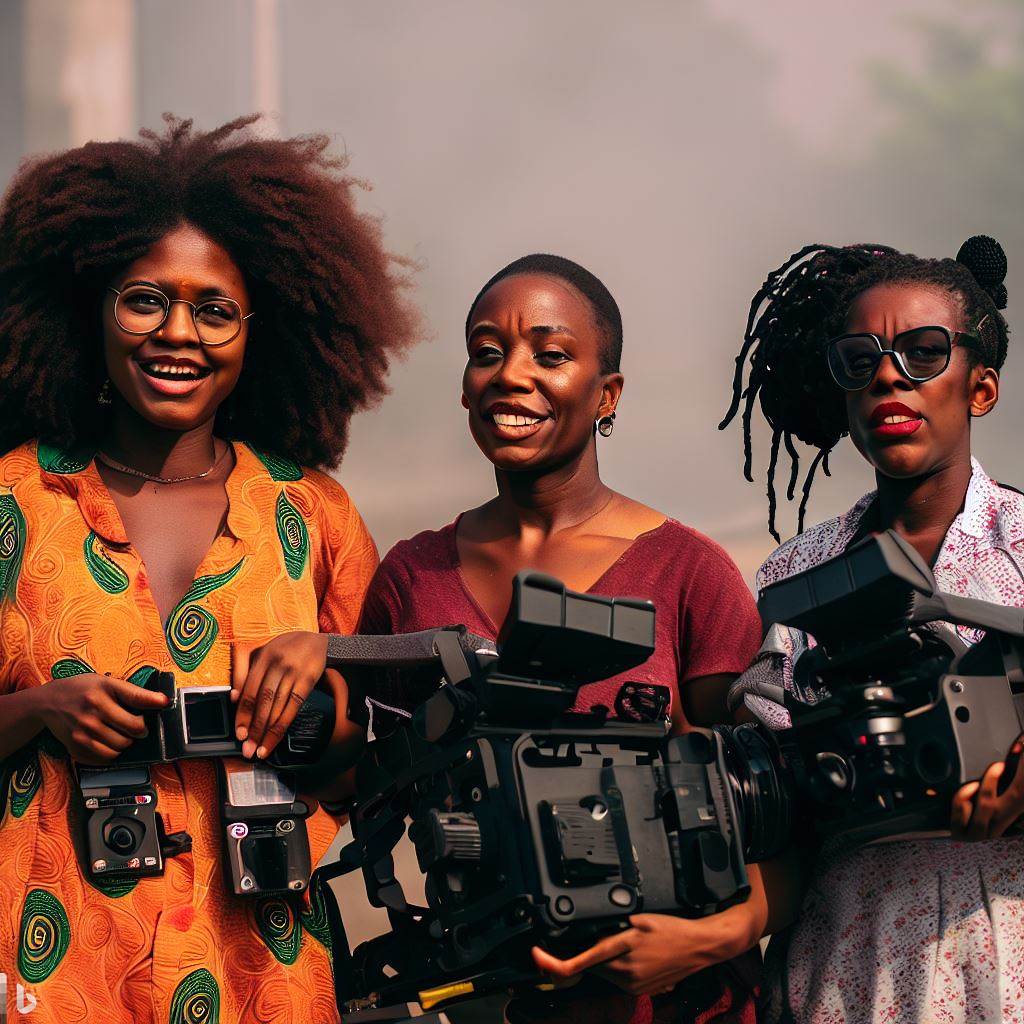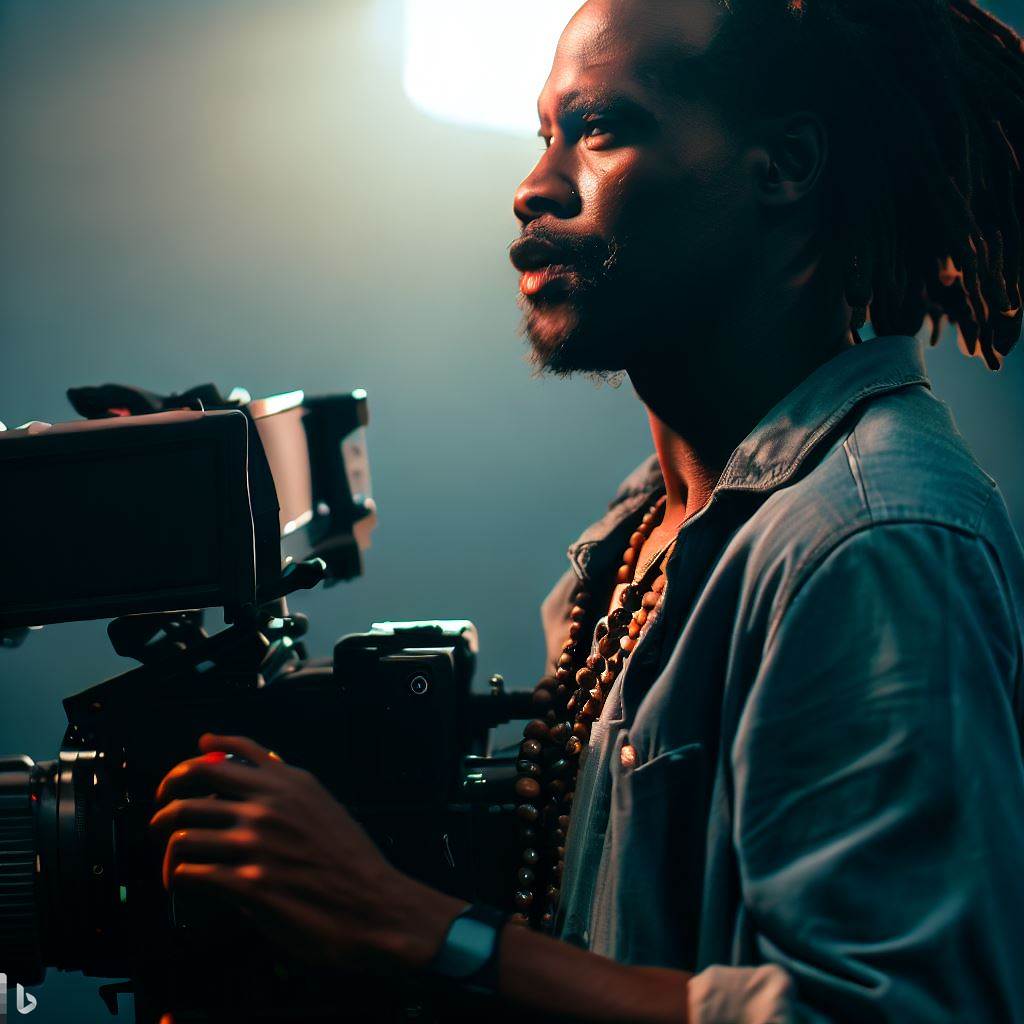Introduction
Exploring the choice between freelance vs agency for Nigerian costume designers offers valuable career insights.
A. Freelance vs. Agency: A Crucial Choice for Nigerian Costume Designers
In Nigeria’s vibrant entertainment industry, costume designers face a pivotal decision – freelance or agency?
This choice significantly impacts their careers, income, and creative freedom.
B. Importance of Understanding the Pros and Cons of these Options
Understanding the pros and cons of these career paths is paramount.
It shapes not only their artistic journey but also their financial stability and work-life balance.
Let’s delve into this critical decision.
Definition of Freelance and Agency Employment
Freelance vs Agency for Nigerian Costume Designers
When it comes to choosing between freelance work and agency employment, Nigerian costume designers need to consider the advantages and disadvantages of each option.
Both freelance work and agency employment have their own unique features that can significantly impact a costume designer’s career and personal life.
A. What freelance work entails for Nigerian costume designers
Starting with freelance work, it is important to understand what it entails for Nigerian costume designers.
- Freelance work means that costume designers are self-employed and take on independent contracts and project-based assignments.
- Unlike traditional employment, freelancers have the freedom to choose their clients, projects, and working hours.
- This autonomy allows costume designers to explore their creativity and work on projects that align with their artistic vision.
- Additionally, freelancers have the flexibility to work from any location and set their own rates, which can potentially lead to higher earnings.
However, there are also downsides to freelance work for Nigerian costume designers.
- The uncertainty of finding new projects and clients can result in inconsistent income.
- Freelancers are responsible for marketing themselves and building a client base, which can be time-consuming and require additional skills outside of costume design.
- Moreover, freelancers often have to handle administrative tasks such as billing, contract negotiations, and managing their own finances.
- These responsibilities can be overwhelming and distract from the creative aspects of costume design.
B. Agency employment for Nigerian costume designers
Agency employment for Nigerian costume designers involves being hired by a costume design agency to work on their projects.
- On the other hand, agency employment offers a different set of opportunities and challenges for Nigerian costume designers.
- This stability can provide a sense of security and reliability, as well as access to resources and support from the agency.
- Working within an agency also allows costume designers to collaborate with other professionals in their field, fostering creativity and skill development.
- However, agency employment may limit a costume designer’s creative freedom and autonomy. Designers may have to follow specific guidelines and project requirements set by the agency and their clients.
This type of employment typically entails fixed hours and a regular income.
- Being hired by a costume design agency means designers will work on the agency’s projects and will typically have fixed hours and a regular income.
- Additionally, working under fixed hours might restrict flexibility, making it more challenging to manage personal commitments or take on side projects.
- Another potential drawback is the possibility of being limited to working on projects that the agency deems profitable, which may limit the opportunity for diversifying one’s portfolio and exploring new creative directions.
In short, Nigerian costume designers have to weigh the pros and cons of freelance work and agency employment before making a decision.
Freelance work offers freedom, creativity, and the potential for higher earnings, but it also comes with the challenge of finding consistent work and handling administrative tasks.
Agency employment provides stability, collaboration, and support, but it may restrict creative freedom and limit opportunities for personal and artistic growth.
Ultimately, the choice between freelance work and agency employment depends on individual preferences, career goals, and the desired balance between creative expression and financial stability.
Read: Managing Remote Teams: A Guide for Nigerian Office Managers
Pros and Cons of Freelance Work
Freelance vs Agency for Nigerian Costume Designers
Freelance work offers numerous advantages and disadvantages for Nigerian costume designers. Let’s explore the pros and cons in detail.
A. Pros
- Flexibility and the ability to choose projects and clients: One of the major advantages of freelance work is the flexibility it provides.
Costume designers have the freedom to select projects and clients that align with their interests and skills. They can work on diverse projects that suit their creative vision. - Potential for higher income and the ability to negotiate rates: Freelance costume designers have the opportunity to earn a higher income compared to those working for agencies.
They can negotiate their rates based on their experience, expertise, and the complexity of the project. This can lead to increased financial rewards. - Independence and creative freedom: As freelancers, costume designers have complete independence in their work.
They can express their creative ideas without any restrictions imposed by an agency. This freedom allows for greater artistic expression and the ability to push boundaries in costume design.
B. Cons
- Inconsistent workload and potential financial instability: One of the main drawbacks of freelance work is the unpredictability of the workload.
Freelancers may experience periods of high demand and abundance of projects, followed by dry spells with limited work opportunities. This inconsistency can lead to financial instability. - Sole responsibility for marketing, acquiring clients, and managing finances: Freelance costume designers have the sole responsibility of finding clients and marketing their services.
They need to actively network, build relationships, and constantly promote their work to ensure a steady stream of projects.
Additionally, they have to manage their finances independently, including invoicing, budgeting, and tax obligations. - Lack of employee benefits, such as healthcare and pension plans: Unlike designers working for agencies, freelance costume designers do not have access to employee benefits.
They are responsible for arranging their own healthcare coverage and retirement plans.
This lack of benefits can be a significant disadvantage, especially in terms of financial security and long-term planning.
In general, freelance work offers flexibility, potential for higher income, and independence for Nigerian costume designers.
However, it also brings challenges such as inconsistent workload, sole responsibility for business operations, and the absence of employee benefits.
Costume designers need to carefully consider these pros and cons before deciding whether to pursue freelance work or join an agency.
Read: Inside the Nigerian Film Industry: Scriptwriting Focus
Pros and Cons of Agency Employment
Freelance vs Agency for Nigerian Costume Designers
When it comes to choosing between freelance and agency employment, each option has its own set of pros and cons.
This section will explore the advantages and disadvantages of agency employment for Nigerian costume designers.
A. Pros
- Stable income and benefits offered by a contracted position: Working for an agency often means having a stable income with fixed pay rates and benefits such as health insurance, paid leave, and retirement plans.
This financial security can provide peace of mind and stability for Nigerian costume designers. - Opportunities for networking and exposure to a diverse range of projects: Agencies usually have a wide network of clients and projects, which can provide costume designers with exposure to a diverse range of creative opportunities.
This exposure can expand their professional network and open doors for future collaborations and career growth. - Collaboration and teamwork with other talented professionals: Working in an agency allows costume designers to collaborate and work alongside other talented professionals, such as photographers, models, and stylists.
This teamwork can foster creativity, inspire new ideas, and lead to the development of unique and outstanding costume designs.
B. Cons
- Limited control over the projects and clients assigned: In an agency, costume designers may have little control over the projects and clients they are assigned to.
They must adapt to the agency’s assignments, which may restrict their creative freedom and limit the types of projects they can work on. - Possible creative restrictions due to agency guidelines or client preferences: Agencies often have guidelines and client preferences that need to be followed.
This can result in costume designers having to compromise their artistic vision or ideas to meet the agency’s or client’s requirements.
This limitation can be frustrating for designers who value artistic freedom. - Potential for lower income compared to freelance work: While agencies offer stable income, the potential for higher earnings through freelance work may be limited.
Agencies take a percentage of the earnings from each project, which can reduce the final income for costume designers.
Freelance work, on the other hand, allows designers to negotiate their rates and keep their earnings without any deductions.
Gnenerally, agency employment provides stable income, networking opportunities, and collaboration with other professionals, but it also comes with limited control over projects, possible creative restrictions, and potentially lower income compared to freelance work.
Nigerian costume designers should carefully weigh the pros and cons before making a decision that aligns with their career goals and personal preferences.
Read: Career Spotlight: Interview with a Nigerian Scriptwriter

Factors to Consider When Choosing between Freelance and Agency Employment
A. Payment and stability considerations
- Assess the stability of income and regularity of payment from freelance projects.
- Consider the potential steady paycheck and benefits offered by agency employment.
B. Personal work preferences and desired level of independence
- Evaluate whether working independently as a freelancer aligns with personal work preferences.
- Weigh the benefits of collaboration and teamwork in an agency setting.
C. Long-term career goals and aspirations
- Consider if freelancing or agency employment better supports long-term career goals.
- Assess opportunities for growth and advancement within agencies versus self-employed career paths.
D. Assessment of marketing and client acquisition skills
- Evaluate personal ability and interest in marketing and acquiring clients as a freelancer.
- Consider the potential support and resources available for client acquisition in an agency.
E. Developing a balance between creative freedom and project variety
- Assess the desired level of creative freedom and flexibility in choosing projects.
- Weigh the potential for a diverse range of projects within an agency setting.
By considering these factors, Nigerian costume designers can make an informed decision on whether to pursue freelance work or agency employment.
Read: The Impact of Nollywood on Scriptwriting in Nigeria
Success Stories of Nigerian Costume Designers in Both Freelance and Agency Settings
Examples of successful freelancers and the projects they have worked on
- Ola is a freelance costume designer who worked on the hit Nigerian movie “The Wedding Party”.
- Femi, another freelancer, designed costumes for a popular Nigerian TV series called “Tinsel”.
- Jumoke, a talented costume designer, collaborated with a freelance team to create costumes for a music video.
Nigerian costume designers who have thrived in agency employment
- Chika secured a position at a prestigious costume design agency and contributed to several Nollywood films.
- Emeka’s skills in designing traditional Nigerian attire earned him a role in a renowned fashion agency.
- Ada, an agency-employed designer, successfully designed costumes for a high-profile Nigerian fashion show.
Insights into their experiences and the lessons learned
Both freelancers and agency-employed costume designers have had their fair share of successes and challenges.
Here are some insights from their experiences:
- Networking and building professional relationships are crucial for success in both freelancing and agency employment.
- Flexibility is important for freelancers who often have to adapt to different projects and client expectations.
- Costume designers in agencies can benefit from a structured and stable work environment.
- Freelancers have more creative freedom and the ability to choose the projects they are passionate about.
- Agency-employed designers often have access to better resources and opportunities for career growth.
- Both groups emphasize the importance of constantly updating their skills and staying up-to-date with industry trends.
- Freelancers highlight the need for effective time management and self-discipline to deliver projects on time.
- Agency-employed designers stress the importance of teamwork and collaboration with fellow designers and production teams.
- Successful costume designers in both settings attribute their achievements to a deep understanding of Nigerian culture and fashion.
Ultimately, whether they choose freelancing or agency employment, Nigerian costume designers have the opportunity to excel in their field and contribute to the vibrant Nigerian entertainment and fashion industries.
Read: Key Challenges Faced by Nigerian Scriptwriters Today
Conclusion
A. Summary of the Pros and cons
Freelance work offers flexibility and freedom, but can lack stability and consistent income.
Agency employment provides stability and resources, but limits creative control and artistic freedom.
B. The importance of considering individual strengths, goals, and preferences in making a decision
It is crucial for Nigerian costume designers to assess their strengths, goals, and preferences in order to make an informed decision.
C. Encouraging costume designers to evaluate their options and select the path that aligns best with their aspirations
Evaluating options thoroughly will enable costume designers to choose the path that aligns best with their aspirations.




